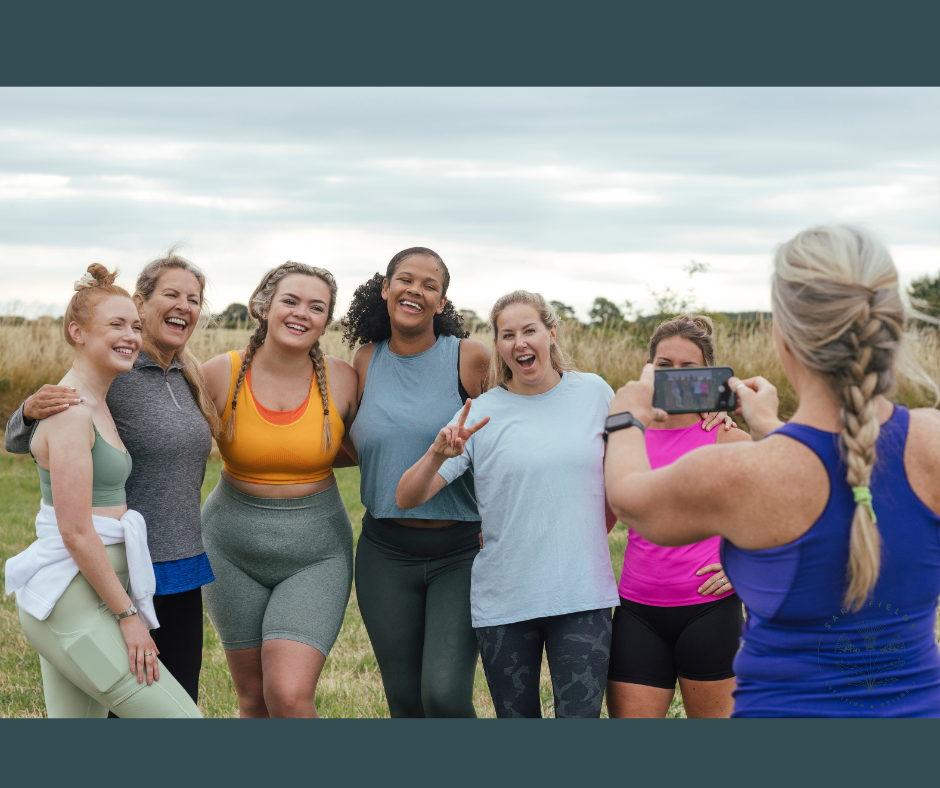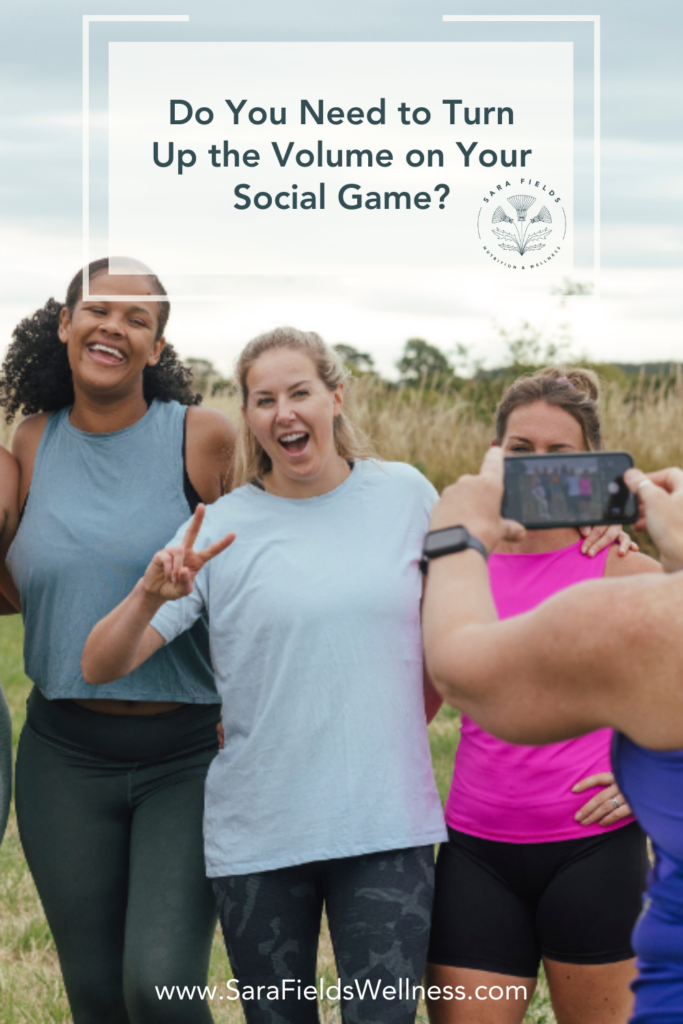Do You Need to Turn Up the Volume on Your Social Game?
February 22, 2024

I’m gonna get vulnerable with you. This is probably one of the most important topics I’ve written about recently, especially in light of the craziness of the last four years and the increasing virtuality of our lives. I hope you’ll stick around for the full read.
Working in the health and wellness field, I really try to practice what I preach. Taking care of myself is a huge priority for me, and I’m pretty good at maintaining healthy habits.
Most of them anyway. Digging into this topic reinforced some glaring miscalculations in my personal wellness plan. Yikes!
In recent years, the research has increasingly highlighted the connection between socialization and health outcomes. As social beings, we have an innate need for companionship, support, and interaction with others. This, of course, brings joy and fulfillment, but it also has far-reaching effects on our physical and mental well-being.
Intellectually, I understood all of this. But it wasn’t until the last few months when I started feeling very “off” that the science really came to life for me. Admittedly, I have not made my social life a priority. Just like so many others, I’ve been wrapped up in the demands of modern life. Sure, I might have been eating a healthy diet, taking my supplements, and getting to step class fairly regularly, but my well-being has not been, well, well. And balanced my life has not been. I’ll be honest – it’s been a little tough.
There is no shortage of recent research highlighting the correlation between social isolation and an increased risk of mental health disorders such as depression, anxiety, and even cognitive decline. Regular social engagement has been associated with improved emotional resilience, reduced stress levels, and enhanced cognitive abilities. Additionally, those with strong social connections tend to have lower rates of chronic diseases and enjoy a longer lifespan. Social interactions stimulate the release of hormones and neurotransmitters associated with relaxation, happiness, and overall well-being, all of which bolster our immune system and contribute to a healthier physiological state.
I talk about the “calm and connection system”, this is the hormone oxytocin that generates a feeling of contentment and is involved in the formation and maintenance of positive relationships. Typically, we think of this hormone as part of the bonding that occurs between moms and babies, but it is also released during other times of physical and emotional bonding. When you hug your partner, have a really special conversation with your friend, or get a massage at the spa – all of these release oxytocin, which can reduce blood pressure, lower cortisol levels, improve pain tolerance, and encourage growth and healing.
Pretty amazing, huh?! So in light of these findings, you can see how prioritizing socialization is a fundamental aspect of our well-being, right? Boy, I sure can… in a much more tangible way than ever before. So while our modern world limits our opportunities for face-to-face interaction, we HAVE to make these things an essential part of our routine.
For me, I’m trying to take more walks with my neighbors, get together with friends I haven’t seen in a long time, visit family more, and regularly attend my favorite local yoga class.
Do you need to turn up the volume on your social game? Here are some ideas:
- Join a community group
- Take a group fitness class
- Participate in a team sport
- Join a book club
- Visit your local farmers market
- Participate in local government
- Volunteer in your community
- Plan something with a friend you haven’t seen in a while
- Take a class at your local library
Socialization goes far beyond mere leisure or entertainment. It is a non-negotiable part of our health and wellness, so if, like me, this part of your wellness wheel is a little out of alignment, do something! Anything! Whatever feels accessible to you right now. If you want more ideas or want to share what you’re doing, I would absolutely love for you to comment below.
Now get out there and boost that oxytocin!
